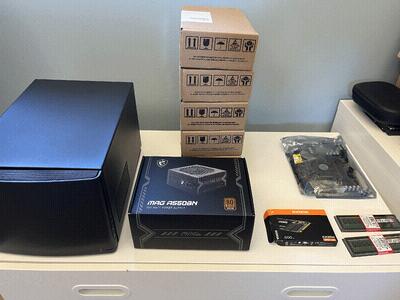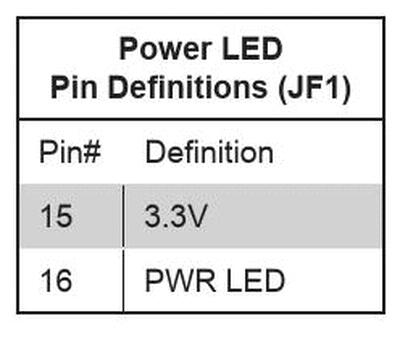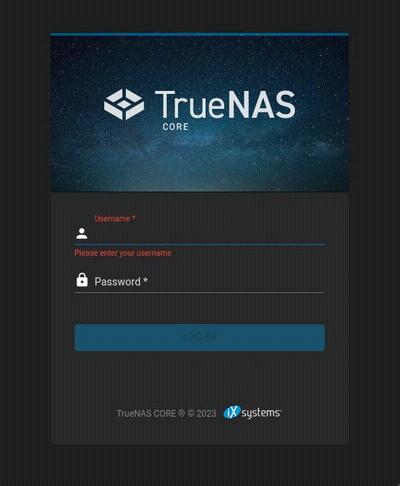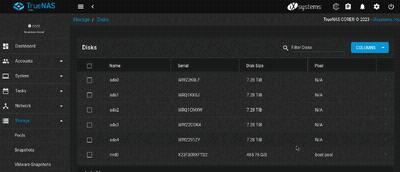Assembling my own NAS
Context
I've been blogging here and there about moving more of my stuff to FreeBSD, for various reasons (I love FreeBSD, I find it easier to maintain/upgrade, it's more stable and consistent across versions).
One of the machines I wanted to migrate for a while was my Synology NAS, as I explained in that article.
The machine
Requirements
I needed my NAS:
- to have a case that fit in my existing rack,
- to have a descent number of hard disks (5 to 6),
- to be not too noisy,
- to have hardware components supported by TrueNAS.
What did I go for
I spent some time on the TrueNAS forums, looking for the right configuration.
Here's what I went for:
- Case: Fractal Design Node 304
- Motherboard: Supermicro X10SDV-4C-TLN2F - not super recent (02/2020), but that's also a feature since there's a lot of feedback on it
- 32 GB of RAM
- 5 x 8TB Seagate IronWolf hard disks - for storage
- 500GB NVMe SSD - for the OS
Here's the gang when I received it:

Assembling
Jeez, this sent me back 25 years in the past when I was assembling my own PCs, something I had long forgotten about!
I first removed the case's top cover and front panel, and followed Fractal Design's "Builder Guide", which was super clear with schemas:
- remove the drive brackets
- remove the PSU bracket
- install the power supply
- install the motherboard (on which I had plugged the 2 x 16GB of RAM + the 500GB har disk)
- connect the cables for front I/O on the motherboard
- connect the fans
- install the hard disks
- mount the front panel and top cover
Power Led
When reading the Supermicro documention, it mentions:
The Power LED connection is located
on pins 15 and 16 of JF1. Refer to the
table on the right for pin definitions.
And here's the table in question:

However, the cables from my case (a Fractal Design Node 304) had 2 pins: POWER LED + and POWER LED -.
As I didn't want to screw things up, I did a quick search and found someone asked the exact same question on Reddit.
And the answer is:
15 is for + and 16 is for -.
Stuff I forgot...
SATA cables and VGA
I forgot to order the SATA cables, to connect the hard disks to the motherboard! And also I realised I no longer had any VGA cable, so I had to order a VGA cable, as well as a VGA to HDMI converter.
Then upon receiving the adapter, and booting the NAS, nothing happened...
I hoped the motherboard was not broken, since I bought it "almost new".
I decided to lend a VGA screen and try with that one, and fortunately this time it worked.
SATA power splitter
When booting, I went into the BIOS, but when looking at the disks, the BIOS
showed no disk.
Which is when it struck me that while I had SATA cables, those disks did not
haver power, since I forgot to order a power splitter! :-)
nvme
I successfully installed TrueNAS on the nvme, which got correctly detected by the installer, but when rebooting, it would not boot into TrueNAS.
A quick search on forums led me to this post, with the OP having the same issue as me.
I switched the m.2 oprom to EFI mode in the BIOS, and reinstalled TrueNAS in UEFI mode (the first time I chose legacy/BIOS), and this time it worked and I finally got TrueNAS booting!
Done
Wow, that was a lot of work and back and forth, but I now have a working NAS, with TrueNAS installed - see by yourself:


I haven't started migrating data yet, since I first need to spend some time on deciding which kind of ZFS configuration I want - which I'll probably discuss in another article!